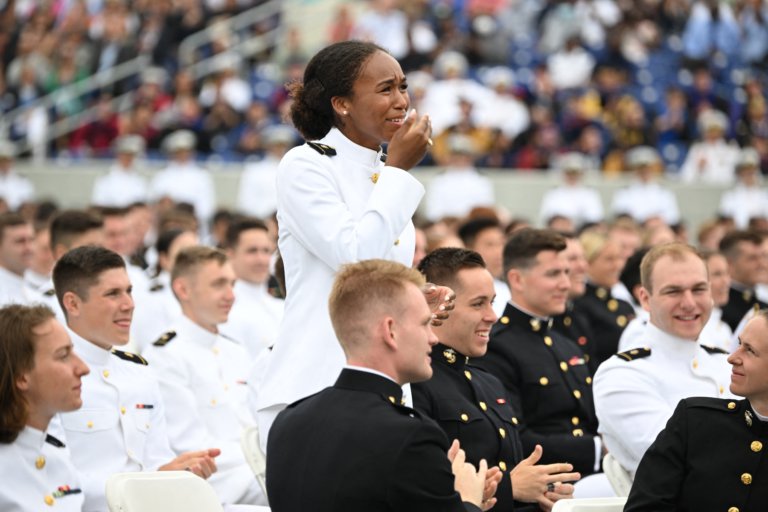
For those of you lucky enough to receive several full-ride scholarships, you will soon find yourselves embroiled in another predicament — which scholarship you should go for.
You could be asking the same question if you have yet to apply — in that case, good for you. As the application journey is usually long and complicated from start to end, it pays to know which full ride scholarship to focus on.
Here’s a useful breakdown of the two most well-known scholarships for international students to help you get started:

Britain’s Catherine, Duchess of Cambridge interacts with students during a visit to Nower Hill High School in Harrow. Source: Kirsty Wigglesworth/Pool/AFP
Chevening Scholarship eligibility requirements
- Be a citizen of a Chevening-eligible country or territory.
- Completed all components of an undergraduate degree that will enable you to gain entry onto a postgraduate programme at a UK university by the time you submit your application
- Apply to three different eligible UK university courses and have received an unconditional offer from one of these choices
- You can still apply to study for a second master’s degree if you already have one, so long as it is not from a UK university or on a UK-based scholarship
Erasmus Mundus Joint Masters Scholarship eligibility requirements
- You must have a bachelor’s degree or be in your last year of bachelor’s studies and graduate before the master’s programme starts
- You may also apply if you demonstrate a bachelor’s equivalent level of learning. This must be officially recognised, according to national legislation and practices, in the degree awarding country

Jimena and Ana, both Spanish students in Erasmus programme, are seen in their apartment after receiving a food bag and some sanitary items from the link association which offers all students food baskets or meals twice a week, in Paris. Source: Ludovic Marin /AFP
Erasmus vs Chevening
While both the Erasmus Mundus Joint Masters scholarship and the Chevening scholarship are prestigious, these are two entirely different funding options that can make or break your study abroad experience.
Ultimately, it is up to you to decide which full ride scholarship works for you, but below are several key factors about each one to help you make your decision:
1. English requirements
Erasmus: Each Joint Masters programme has a different requirement that needs to be fulfilled. While some require English, others do not and instead, require you to be proficient in other European languages.
Chevening: The English language requirement was removed in 2020 but you’re still required to fulfil the university requirements of your three choices.
2. Application Timeline
Erasmus: Most programmes require applications to be submitted between October and January for courses starting the following academic year.
Chevening: The process of selecting Chevening Scholars takes a minimum of eight months from the application deadline to when applicants are conditionally selected for an award. Here is an overview of the application and selection process, so you always know what’s going on.

Still deciding which scholarship to apply for? Compare and contrast both these full ride scholarships and determine what matters most to you. Source: Shutterstock
3. Time to complete the course
Erasmus: Depending on the master’s programme, it can last from one to two years.
Chevening: Generally no more than a year as most UK taught master’s programmes last from nine to months to a year.
4. Interviews
Erasmus: Interviews are normally held by the consortia of the programme you applied for.
Chevening: Once, by the embassy or high commission in your country.
5. Travel opportunities
Erasmus: You’ll study in at least two European countries.
Chevening: Based in the UK, and only at one university.

All smiles as Erasmus scholarship winners settle in at university. Source: Ludovic Marin/ AFP
6. Courses
Erasmus: Courses are limited to a catalogue of around 160 courses
Chevening: Courses cannot be part-time, distance learning, and a PhD or DPhil.
7. Work experience
Erasmus: You are not required to have any work experience.
Chevening: Have at least two years (equivalent to 2,800 hours) of work experience.
8. Bond
Erasmus: No bond restriction to return to your study destination
Chevening: Return to your country of citizenship for a minimum of two years after your award has ended.
9. Citizenship
Erasmus: Students at master’s level from all over the world can apply.
Chevening: You are not eligible for a Chevening Scholarship if you check one of these boxes.










